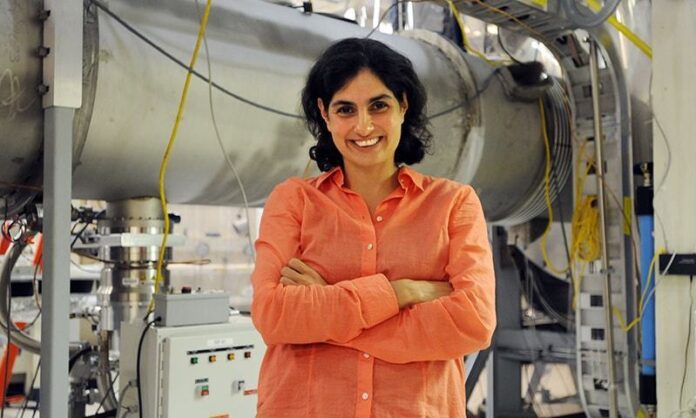Pakistan-born quantum astrophysicist Nergis Mavalvala has been named the new dean of the MIT School of Science, one of the five schools of the Massachusetts Institute of Technology (MIT), it emerged on Tuesday.
According to MIT News, she will become the new dean from September 1 and will succeed Michael Sipser, who will return to the faculty as the Donner Professor of Mathematics after six years of service.
Nergis Mavalvala named School of Science dean 👏🏻: Astrophysicist and associate head of the physics department will succeed Michael Sipser. https://t.co/ZqXQukyB6A @ScienceMIT pic.twitter.com/Q780QX3xpk
— Massachusetts Institute of Technology (MIT) (@MIT) August 17, 2020
Mavalvala is renowned for her pioneering work in gravitational-wave detection, which she conducted as a leading member of the Laser Interferometer Gravitational-Wave Observatory (LIGO), the report said.
“She has received numerous awards and honours for her research and teaching, and since 2015 has been the associate head of the Department of Physics. Mavalvala will be the first woman to serve as dean in the School of Science.”
It added that Mavalvala was “energised and optimistic” about the role ahead, even as she acknowledged the unprecedented challenges the school and the institute as a whole were facing during this difficult time.
“We’re in this moment where enormous changes are afoot,” she said. “We’re in the middle of a global pandemic and economic challenge, and we’re also in a moment, at least in US history, where the imperative for racial and social justice is really strong.
“As someone in a leadership position, that means you have opportunities to make an important and hopefully lasting impact,” she said.
Meanwhile, MIT President L. Rafael Reif stated that Mavalvala’s “brilliance as a researcher and educator speaks eloquently for itself”.
“What excites me equally about her appointment as dean are the qualities I have seen in her as a leader: She is a deft, collaborative problem-solver, a wise and generous colleague, an incomparable mentor, and a champion for inclusive excellence.
“As we prepare for the start of this most unusual academic year, it gives me great comfort to know that the School of Science will remain in such capable hands.”
The report added that the news was announced by Provost Martin Schmidt via a letter emailed to the MIT community in which he said:
“I very much look forward to working with her and to benefiting from her unerring sense of scientific opportunity, infectious curiosity, down-to-earth manner and practical wisdom.
“I hope you will join me in congratulating her as she brings her great gifts as a leader to this new role.”
Born to a Parsi family in Karachi, Mavalvala received her early education from the Convent of Jesus and Mary school.
She later moved to the United States as a teenager to attend Wellesley College in Massachusetts, where she is said to have a natural gift for being comfortable in her own skin, according to an article published on the sciencemag.org website.
Mavalvala did her BA at Wellesley College in Physics and Astronomy in 1990 and a Ph.D. in physics in 1997 from MIT.
Before that, she was a postdoctoral associate and then a research scientist at the California Institute of Technology (Caltech), working with LIGO.
She also received the prestigious MacArthur Foundation Award in 2010. Later in 2016, Mavalvala was part of a team of scientists credited with the discovery of gravitational waves, a new window for studying the cosmos.
“We are really witnessing the opening of a new tool for doing astronomy,” Mavalvala had said in an interview at the time. “We have turned on a new sense. We have been able to see and now we will be able to hear as well.”




